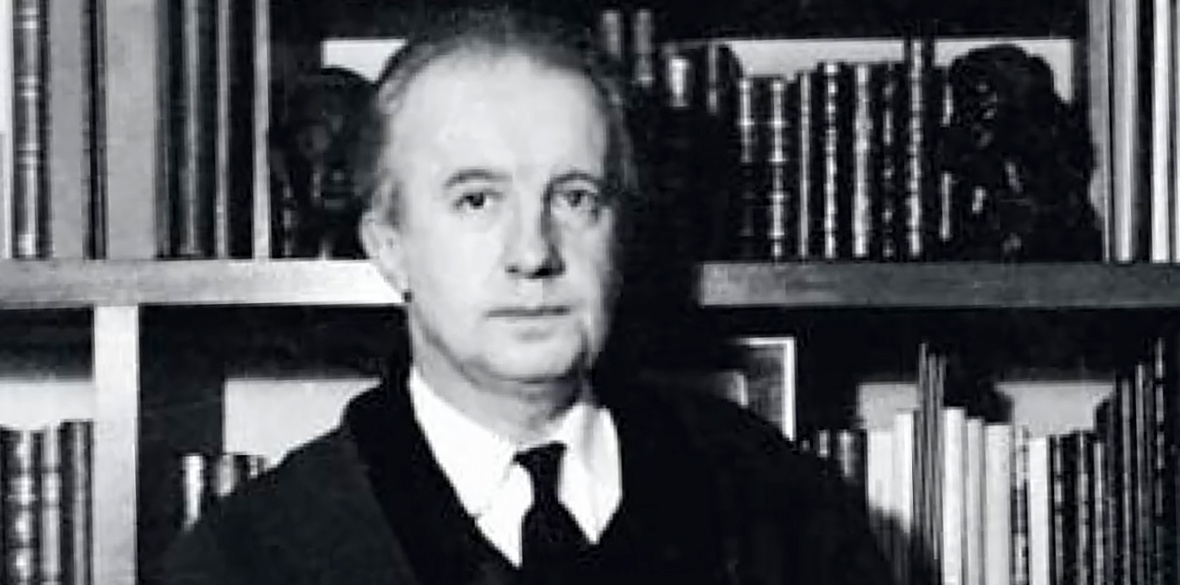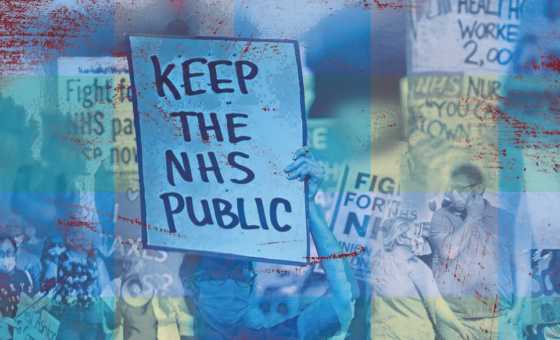This is the last article you can read this month
You can read more article this month
You can read more articles this month
Sorry your limit is up for this month
Reset on:
Please help support the Morning Star by subscribing here
IN THE course of my work as a poet, I regularly meet those strange creatures, the literary liberals. They ascribe to themselves every progressive and humane value, while at the same time apparently finding no place in their imaginations for even the possibility of a world not run in the interests of Jeff Bezos, Elon Musk and Apple Inc.
They are the sort of people who, if they didn’t necessarily agree with her, would at least have understood where artist Tracy Emin was coming from when she called David Cameron’s coalition of 2010-15 “the best government... that we’ve ever had”.
Politically, Emin may be an ignoramus. But her incontinent mouth is useful in that it makes her spell out what others in the arts are only brave enough to occasionally think.
It has been my experience that, post-2008, most established literary creatives cannot imagine as possible a world in which a substantial percentage of the populations of countries such as Ireland, Britain and the United States don’t live in Victorian levels of poverty.
Yet the idea of properly taxing the super-wealthy and making sure they don’t find a way of avoiding tax is seen by your average sensible member of the literary classes as a notion only seriously held by annoying teenagers and people who think it’s still 1975.
According to this broad school of thought — if it can be called thought — there never was any other possible solution to 2008 but spending less on the lower orders and using that money to bail out JP Morgan, Anglo-Irish Bank and the Royal Bank of Scotland in the hope that the pre-slump status quo could somehow be restored.
So your average literary stuffed jacket tends to quietly cut characters such as Varadkar, Obama, and Cameron a huge amount of slack, as long as they give them things like a side of same-sex marriage to go with all those hungry schoolchildren and people sleeping in wet cardboard boxes.
They are the same lit-libs who, should your criticism of things as they now are become too harsh, will leap to reel off the — actually very short — list of good things people like “Barack” and “Leo” did while leading their respective countries.
They then pull the sort of face one does while having a catheter inserted if you dare suggest some bit of communist craziness such as that, to pay for the Covid crisis, Ireland should consider increasing its notoriously low corporation tax rate from the current 12.5 to, say, 13 per cent for the next five years — an increase of just 0.5 per cent.
They offered similar responses if they thought one was getting irresponsibly enthusiastic about the movements around Jeremy Corbyn, Bernie Sanders or Syriza in Greece in 2015, or the successful anti-water privatisation movement in Ireland or, if they are that particular sort of American, the idea of Medicare for all or a minimum wage of $15 per hour.
It’s a way of reducing what the person to their left is saying to a collection of perceived dogmas they no doubt think one has held to fanatically, like some dusty bedsit socialist Ten Commandments, around since Arthur Scargill were a lad.
Nothing could be further from the truth. Marxism is something I spent several years actively trying to get away from but couldn’t, precisely because the ideas that dominate the mostly middle-class poetry world in which I have been immersed for two decades are so absurd in comparison.
It is this lack of intellectual seriousness, which looks increasingly obscene set against events — not to mention its by-product, the almost comical chancerism and opportunism which literary liberals call “networking” — that has led me to start acting and thinking in an overtly Marxist way again.
The networking phenomenon lately reached possible apotheosis with one of Ireland’s premier literary resource organisations using its website to advise beginner writers to get a professional headshot taken and some business cards made. It went on to suggest new writers take a course with said organisation which would, among other things, help them in building their “brand” as a writer.
Marx predicted capitalism would, in time, magic everything into a commodity. And now an Irish state-funded arts organisation proves him right by overtly urging young writers to see themselves as commodities from the start.
When I started writing poetry, even to say the word “capitalism,” or to write poetry which acknowledged that system’s existence, marked one out as some sort of peculiarity because if you knew the word capitalism you could only have been taught it by socialists.
What first strikes me when I read contemporary poetry is that much of it seems to me to be paralysed by an absurd respect for existing institutions and, in particular, the sacred institution of private property. This didn’t matter much in the pre-crisis years, when history was supposed to be over and socialism in the cemetery.
But it matters now. Around a century ago, French poet Paul Eluard, first a leading Surrealist and then a committed Communist, wrote the following in his Critique of Poetry:
Of course I hate the reign of the bourgeois
The reign of cops and priests
But I hate still more the man who does not hate it
As I do
With all his might
I spit in the face of that despicable man
Who does not of all my poems prefer this Critique of Poetry.
It is impossible to imagine any member of the self-selecting Irish poetry top table publishing such a poem. And the idea that such a poem would ever be allowed to pour its glorious contempt from the main stage at any of our posher literary festivals is laughable.
Such gatherings are increasingly the intellectual equivalent of a pampering spa with a seaweed bath, places where people with above-average incomes — and sometimes their sons and daughters, who aspire to be writers — go to retreat from ugly realities and remind themselves how progressive they are.
Walter Benjamin wrote of the Surrealists, who began as a movement of poets, that they sought to construct a literature where “the ‘best’ room is missing”. Working-class poets will only be allowed into that “best room” as long as they ditch barbed critiques of the Eluard variety, acquire an agent and join what I call the My Old Man’s a Dustman school.
The government-funded bouncers who guard poetry’s “best room” quite enjoy non-threatening verse anecdotes about life among the lower orders, especially when told in a suitably charming inner-city accent.
The only explanation for this is a Marxist one. The literary wing of Ireland’s establishment, deep down in its faintly pumping heart, agrees that there is, in the words of the late Margaret Thatcher, no alternative.
Yes, there will be occasional bleating about the need for better ethics legislation and the like. And poems about the undeniable sins and abuses of the Ireland of yesterdecade are available by the truckload. The result is a lot of well-written poems which mostly seem to me to be beside the point. Contemporary Irish poetry is very brave when it comes to kicking long-dead archbishops.
In the past, the saving grace the occupants of poetry’s “best room” could claim for themselves was that they, and they alone, were a kind of insurance against bad political poetry which was all and only about being on message. No more. Joe Biden’s inauguration poem was every bit as bland as the poetry promoted by Commissar Zhdanov in his heyday and, if truth were told, probably a little worse.
Stranded in this strange world, what then is one to do?
Keep going in the opposite direction. I don’t write poems to support particular little political factions. I write them to support, and just as importantly to record, the progressive movements of our time — the Repeal the 8th Amendment and the anti-water charges movements in Ireland, the Corbyn and Sanders movements and Black Lives Matter.
The last few years have been politically thrilling times and the chance to respond to them in poems has been a dark joy. I look forward to the next few years when I fully expect most of the little liberal poets, every one of them desperate for an invitation to read one of their poems to the president of somewhere, to still kick the occasional dead archbishop every so often as they go, just to prove how “edgy” they are.
This is an edited extract from Kevin Higgins's essay Being a Marxist Poet in 21st-century Ireland.










